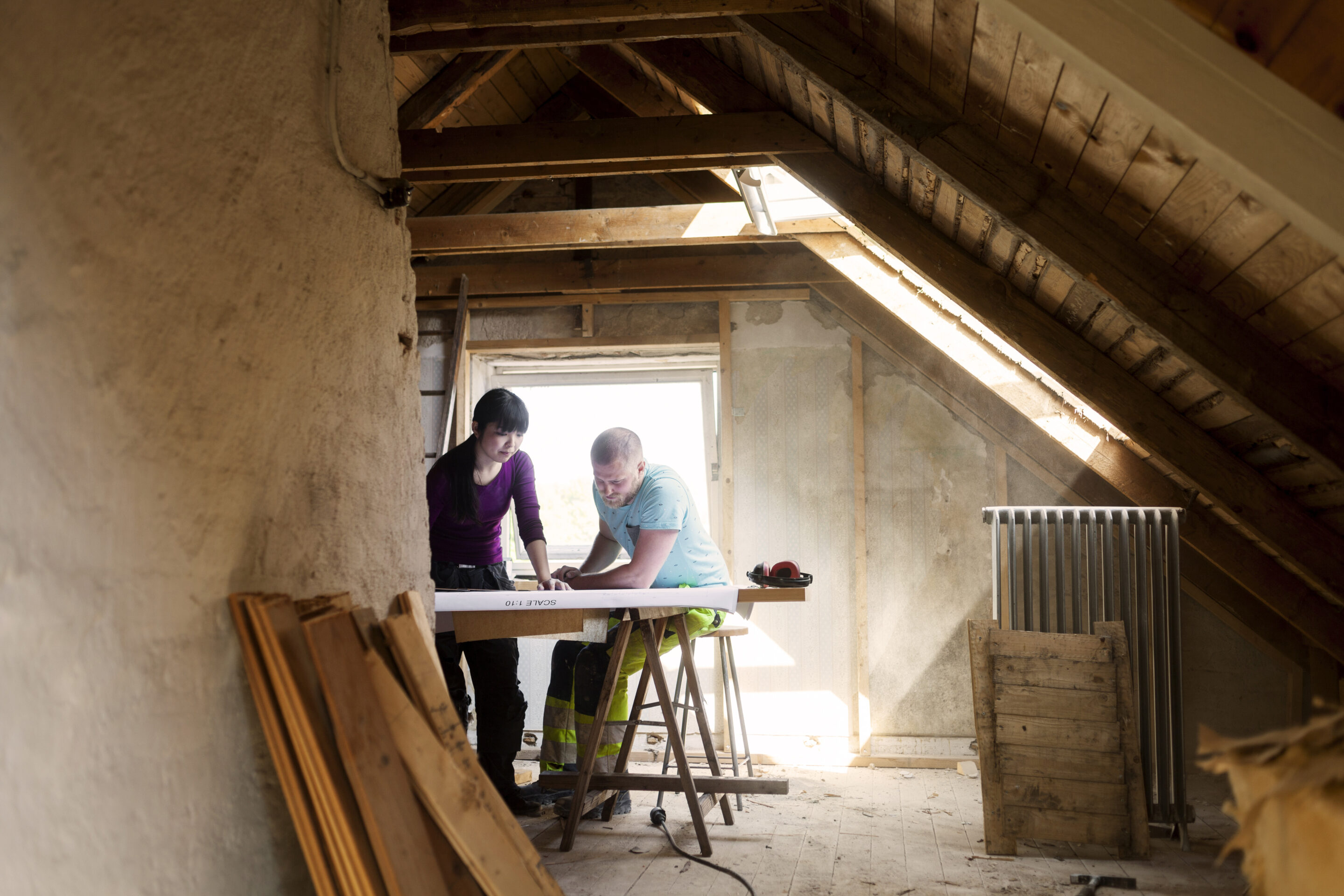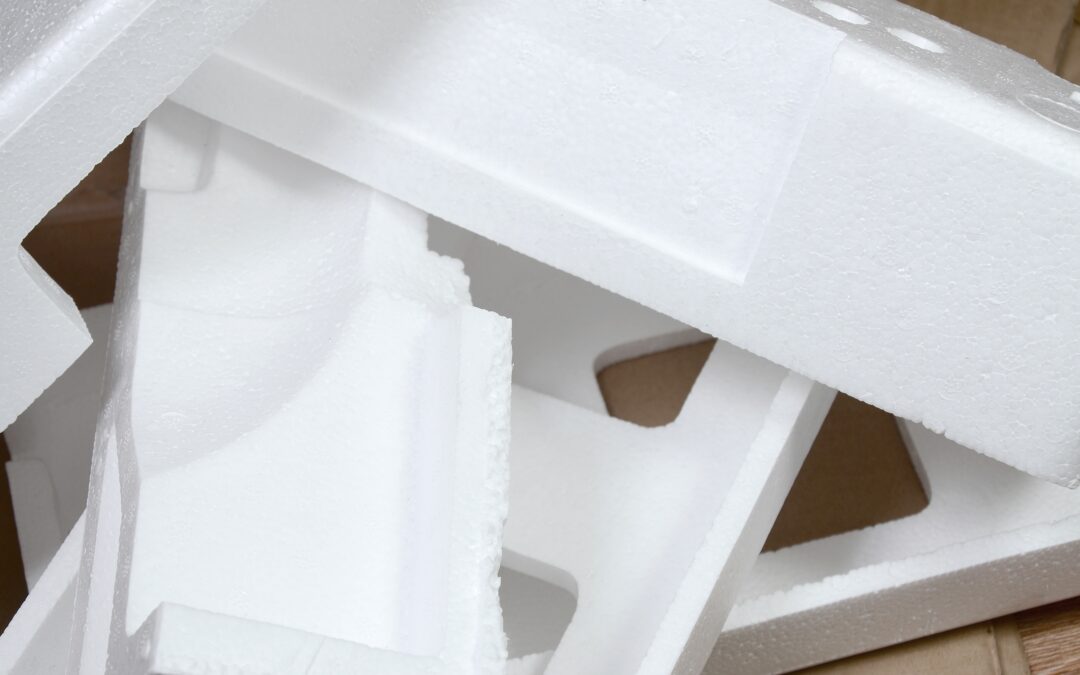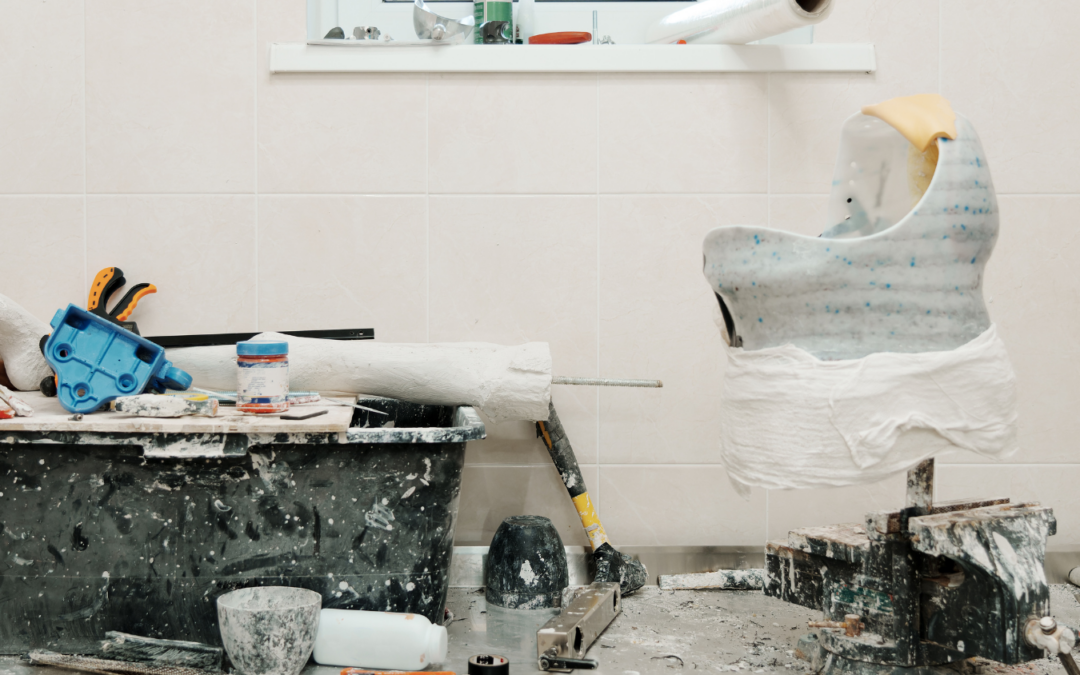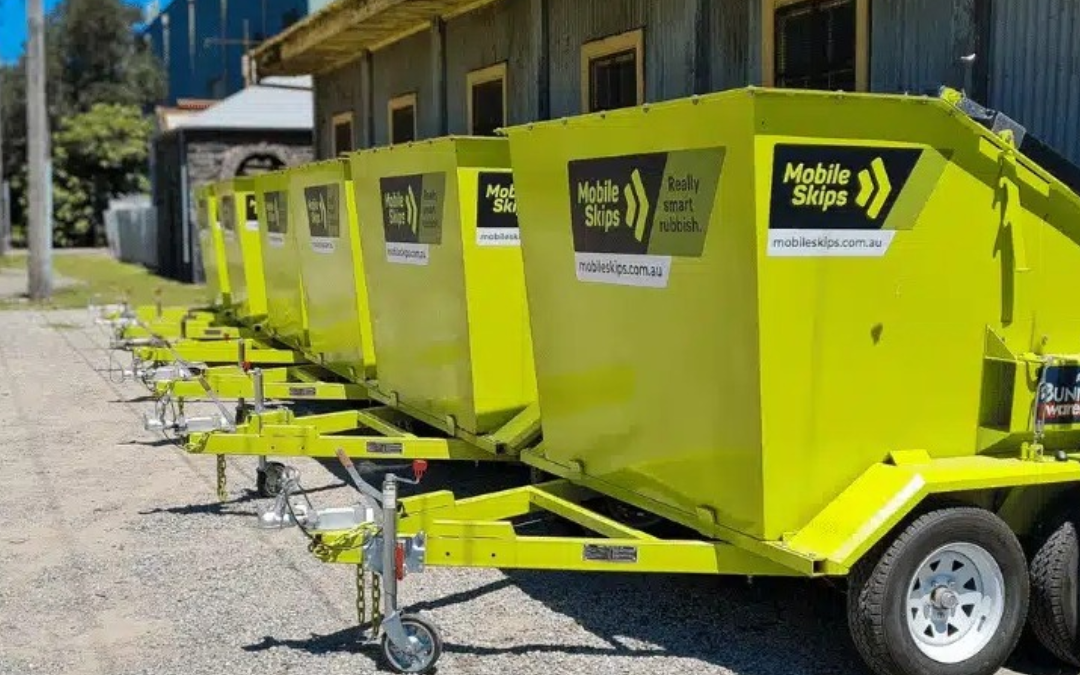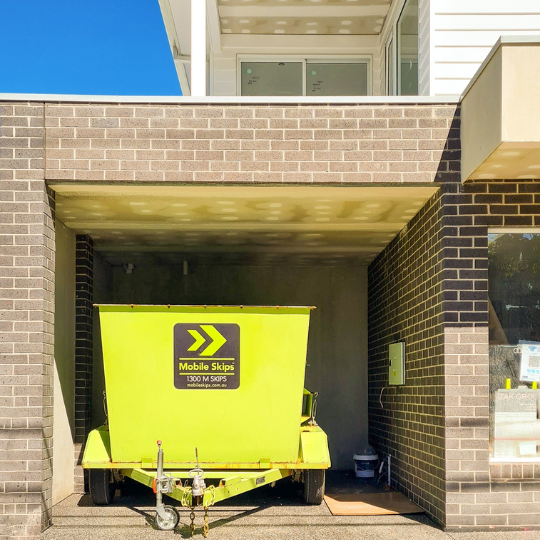Why Efficient Waste Management Is Key for Home Extensions
Extending or adding onto your home generates significant construction debris, from concrete and timber to fixtures and insulation. Proper waste management is essential to keep your project moving smoothly, maintain a safe worksite, and ensure that waste is disposed of responsibly.
Construction projects generate various waste materials, including builders waste such as concrete, timber, fixtures, and insulation, which each require different management strategies. By efficiently managing these materials, you can minimize environmental impact and ensure a cleaner, more organized workspace.
The Importance of Efficient Waste Management
Construction and renovation projects not only produce a significant amount of debris but also contribute to greenhouse gases, with construction and demolition accounting for approximately 40% of all global energy emissions (Mobile Skips). Efficient waste management helps in reducing this environmental footprint by recycling and properly disposing of waste materials.
Australia has been a leader in waste management techniques, particularly in hazardous waste disposal, following regulations such as the Hazardous Waste Act of 1989 (Mobile Skips). Properly managing and disposing of waste ensures compliance with these regulations and promotes a sustainable environment.
How Mobile Skips Waste Removal Can Help
Mobile Skips’ offers a convenient solution for managing debris in tight spaces or areas with limited access. These 4 cubic metre skip bins are mounted on trailers, making them ideal for properties with limited access, tight driveways, or suburban streets. The compact size allows for easy placement close to your worksite, minimizing the need to carry heavy debris long distances.
| Feature | Benefit |
|---|---|
| Compact, Trailer-Based Design | Ideal for tight spaces and suburban streets |
| No Council Permits Needed | Saves time and money, hassle-free setup |
| Flexible Pickup and Drop-Off Times | Schedule according to your renovation timeline |
| No Additional Costs | Only pay for skip hire, no need for permits |
Mobile Skips also allow for flexible pickup and drop-off times, enabling you to schedule waste removal according to your specific project timeline. This flexibility helps you manage waste effectively without disrupting your workflow, ensuring a clean and safe worksite.
For tips on sorting materials for recycling, check our guide on sustainable waste removal.
Benefits of Mobile Skips
- Easy Access: Skip bins mounted on trailers can be placed close to your worksite.
- No Permits Required: Unlike traditional skips, no council permits are needed.
- Flexible Scheduling: Align waste removal with your construction phases.
- Environmentally Friendly: Reduces landfill by promoting proper waste disposal and recycling.
Efficient waste management not only keeps your project moving smoothly but also maintains a safe environment and supports sustainable practices. For more tips on handling specific types of renovation waste, visit our section on removing renovation waste.
Planning waste management before starting your extension can prevent delays. For a comprehensive guide on waste removal strategies, visit our article on renovation clean up.
How Mobile Skips Simplifies Waste Removal for Home Extensions
Compact, Trailer-Based Design
What It Means
Mobile Skips’ 4 cubic metre skip bins are mounted on trailers, making them ideal for properties with limited access, tight driveways, or suburban streets (Mobile Skips). The compact size ensures that the skip can be placed close to your worksite, minimising the need to carry heavy debris long distances.
| Skip Bin Size | Capacity |
|---|---|
| 4 cubic metres (500kgs) | Small projects |
| 4 cubic metres (1000kgs) | Home extensions |
For more information on managing home renovation waste, click here.
Tip
The compact design allows for easy placement near your construction site, reducing the effort needed to transport heavy materials and making it more convenient to clear builders waste during your renovation.
No Council Permits Needed
What It Means
Unlike traditional large skips, Mobile Skips do not require council permits. They can be parked on your property or in your driveway (Mobile Skips). This saves you both time and money, allowing you to start your project without the hassle of obtaining permits.
| Skip Bin Type | Permit Required |
|---|---|
| Traditional Large Skips | Yes |
| Mobile Skips | No |
Check out our guide on removing renovation waste for more details.
Tip
By avoiding the need for council permits, you can streamline your home extension project and focus on getting the job done. This can be particularly useful for bathroom renovation projects where space is often limited.
Flexible Pickup and Drop-Off Times
What It Means
Mobile Skips provides flexible pickup and drop-off times, allowing you to plan waste removal according to your renovation timeline (Mobile Skips). This makes it easier to manage waste without disrupting your workflow.
| Service | Feature |
|---|---|
| Mobile Skips | Flexible Pickup/Drop-Off |
| Traditional Skips | Fixed Schedule/chasing up your skip may be required |
Read more about reno skip bin waste management here.
Tip
Arrange for pickups when your skip is full. This ensures your worksite remains clean and free of waste, preventing potential delays and safety hazards. For larger projects, consider regular scheduling to avoid waste pileups.
Incorporate these practices to efficiently manage builders waste during your next home renovation or extension project. By using Mobile Skips, you can ensure a smooth, hassle-free experience.
Types of Waste Generated from Home Extensions and Add-Ons
When undertaking a home extension or renovation, managing the generated waste effectively is crucial. The types of waste you’ll encounter can be divided into several main categories.
Construction Debris
What It Includes:
- Timber
- Drywall
- Insulation
- Metal beams
- Concrete
Construction debris forms a significant portion of builders waste. This includes materials like timber, drywall, insulation, metal beams, and concrete. Efficiently breaking down large items such as timber and drywall will help maximise the space in your skip bin, ensuring that waste removal is both efficient and cost-effective.
| Material | Common Forms | Tips for Disposal |
|---|---|---|
| Timber | Planks, beams | Break down into smaller pieces |
| Drywall | Sheets | Cut into manageable sections |
| Insulation | Rolls, boards | Compress if possible |
| Metal Beams | Structural beams | Cut into smaller lengths |
| Concrete | Blocks, slabs | Break into chunks |
For more details about handling construction waste, have a look at our comprehensive guide.
Old Fixtures and Fittings
What It Includes:
- Doors
- Windows
- Sinks
- Cabinets
- Light fixtures
Old fixtures and fittings from renovations also need to be disposed of correctly. This includes items like doors, windows, sinks, cabinets, and light fixtures. To utilise your skip bin space efficiently, dismantle bulky items to fit more debris in your skip bin.
Tip: Use a multi-tool or screwdriver to dismantle these items and place components like wood and glass separately into the skip for easier stacking.
Explore our tips on disposing of home renovation waste for more handy hints.
Roofing Materials
What It Includes:
- Shingles
- Metal roofing
- Tiles
- Gutters
Roofing materials like shingles, metal roofing, tiles, and gutters can take up a considerable amount of space. Stack these materials neatly in your skip to optimise space and ensure safe removal.
Tip: Arrange tiles and shingles flat and close together to avoid taking up unnecessary space.
To find out more about managing roofing renovation waste, check out our detailed article.
Landscaping and Earthmoving Waste (if applicable)
What It Includes:
- Soil
- Rocks
- Concrete
- Garden debris
If your home extension involves landscaping or earthmoving, additional waste may include soil, rocks, concrete, and garden debris. It’s a good idea to separate soil and rocks from other construction debris to streamline the disposal process.
Tip: Use separate containers for soil and rocks to keep your skip bin organized and maximise space for other materials.
Managing this type of debris effectively can be found in our home landscaping resources.
Using a well-crafted construction waste management plan will help prevent complications, enhance efficiency, and reduce landfill waste. Effectively separating and managing various types of waste can contribute significantly to the smooth progress of your renovation. For more details on segregating and recycling waste, visit our guide on sustainable waste removal.
Best Practices for Managing Waste During Home Extensions
Effective waste management during your home extension or add-on project is essential. Here are some best practices to help you manage builders’ waste efficiently and sustainably.
Break Down Larger Items for More Efficient Disposal
Cutting down larger items into smaller pieces is an effective way to maximise space in your skip bin. It helps you fit more waste into the bin and reduces the need for multiple skips.
Tip: Cutting down wood, drywall, and metal beams into smaller pieces will help you fit more into the skip bin, minimising the need for multiple skips.
Plan for Regular Waste Removal
Regular waste removal is crucial to maintain a clean and organised worksite. Scheduling pickups at regular intervals ensures that waste doesn’t pile up, especially during major phases of construction.
Tip: Schedule regular pickups to avoid waste pileups, especially during major phases of construction. This will help you maintain a clean and organised worksite.
Separate Recyclable Materials
Separating recyclable materials from other waste minimises your environmental impact. Items like metal, wood, and cardboard can often be recycled, reducing the amount of waste that ends up in landfill.
What It Includes:
- Metal
- Wood
- Cardboard
Tip: Separate materials that can be recycled, like metal beams or timber, to reduce your environmental impact and make disposal easier.
For more detailed instructions and tips, visit our guide on sustainable waste removal.
By implementing these best practices, you can ensure efficient and environmentally-friendly management of builders’ waste during your home extension project. To learn more about handling specific types of renovation waste, check out our articles on home renovation waste, kitchen renovation waste, and bathroom renovation waste.
What Can and Can’t Go in a Mobile Skip for Home Extensions
What Can Go in a Skip
Mobile Skips are designed to handle a variety of builders waste generated during home extensions and renovations. Understanding what can be placed in the skip is crucial for efficient waste management.
Accepted Items:
- Wood: Including planks, beams, and framing.
- Drywall: Also known as plasterboard, it can be broken down for easy disposal.
- Metal Beams: Structural or decorative metal parts.
- Roofing Materials: Shingles, metal roofing, tiles, and gutters.
- Insulation: Various forms including foam and fibreglass.
- Old Fixtures: Such as doors, windows, sinks, and cabinets.
- General Debris: Any other non-hazardous building waste.
Tip: Stack heavy items like bricks and concrete at the bottom, and lighter materials like drywall on top to avoid overloading and to maximise space.
For further details on renovation waste, you can explore more types of accepted materials.
What Can’t Go in a Skip
Despite their versatility, Mobile Skips have limitations on what materials they can safely and legally transport. Proper disposal of these restricted items is essential to adhere to safety regulations and avoid fines.
Not Accepted Items:
- Hazardous Materials: Such as paint, asbestos, chemicals.
- Large Appliances: Fridges, stoves, washing machines.
- Excessive Soil: Limited quantities accepted, contact for more guidance.
- Batteries: Automotive or household.
- Medical Waste: Bandages, needles, and similar items.
- Flammable Liquids: Including petrol and kerosene.
- Electronics: Such as TVs, computers, and other e-waste.
Tip: If your renovation involves hazardous waste or larger, heavy-duty materials, contact a licensed hazardous waste service to handle disposal.
For additional information on handling specific items, visit our guides on kitchen renovation waste and bathroom renovation waste.
By understanding what can and can’t go into a Mobile Skip, you ensure compliance with waste management guidelines. For any further assistance, Mobile Skips provides customer support to help you manage your home renovation waste efficiently.
When Mobile Skips May Not Be Suitable for Your Home Extension Project
Excessive Heavy Materials
Considering the type of project you’re undertaking is crucial when choosing the right skip for your builders waste. Mobile Skips are ideal for light to medium-weight materials, ensuring efficient waste removal in tight spaces. However, they may not be suitable for projects that generate significant amounts of heavy materials.
What It Includes: Large quantities of concrete, bricks, or soil
Certain renovations, especially major extensions, often produce a substantial amount of heavy construction debris. This includes large quantities of concrete, bricks, and soil.
| Material Type | Typical Waste Generated |
|---|---|
| Concrete | Up to 50 kg per square metre |
| Bricks | Up to 4 kg per brick |
| Soil | 1 cubic metre = approx. 1.5 tons |
Why It Matters
While Mobile Skips are perfect for lighter and more manageable materials, they are not designed to handle excessive weight. If your project generates more than 5 wheelbarrows of heavy debris like concrete or bricks, a larger, heavy-duty skip bin may be necessary to ensure safe and effective waste removal. Overloading a Mobile Skip can make it unsafe to transport and may incur additional fees. For major extensions with significant amounts of heavy materials, opting for a bin specifically designed for this type of waste is advisable.
Tip
For large-scale renovations, consider renting a more robust skip to handle heavy materials. This ensures that your waste management plan is efficient and compliant with safety regulations. Planning ahead and understanding the volume of waste your project will generate can save you time and avoid the need for multiple skips. For more information on managing heavy waste, visit our page on demolition waste handling strategies.
By knowing when and how to choose the appropriate waste management solution, you can keep your project on track and ensure that your home renovation waste is handled responsibly.
Safety Tips for Managing Home Extension Waste
Wear Protective Gear
Why It’s Important: Construction debris like nails, sharp metal, and broken tiles can cause injury.
Tip: Always wear gloves, safety glasses, and sturdy shoes when handling construction waste to prevent accidents.
Avoid Overloading the Skip Bin
Why It’s Important: Overloading can make the bin unsafe to transport and may lead to extra fees (Mobile Skips, Levelset).
Tip: Stick to the fill line, especially with heavier items like bricks or timber, and ensure the weight is evenly distributed for safe removal.
| Waste Material | Recommended Weight Distribution | Avoid Overloading Tip |
|---|---|---|
| Bricks | Evenly distributed | Stack at bottom |
| Timber | Evenly distributed | Cut into smaller pieces |
| Concrete | Evenly distributed | Stack at bottom |
| Drywall | Evenly distributed | Place on top |
Keep Your Worksite Organized
Why It’s Important: A cluttered site can lead to accidents and delays (Seagull Disposal).
Tip: Regularly remove debris and dispose of it in your Mobile Skip to keep your workspace clean and efficient.
For more information on managing home renovation waste and ensuring a safe and efficient worksite, check out our tips on renovation waste and best practices for disposing of builders waste.
One Last Tip: Plan for Waste Removal Before Construction Begins
Having a clear waste removal plan in place before starting your extension or add-on will help prevent delays and keep your worksite organized
Efficient waste management begins with a robust plan (Seagull Disposal). Before your home extension or add-on renovation kicks off, it’s crucial to outline how home renovation waste will be handled, reduced, and disposed of. This proactive approach ensures all team members understand their roles in effective waste management.
A well-crafted waste management plan should include:
- Waste Reduction Goals: Identify strategies to minimise waste generation.
- Recycling Goals: Separate recyclable materials like metal, wood, and cardboard.
- Disposal Methods: Plan for the disposal of non-recyclable items.
- Roles and Responsibilities: Clearly assign tasks related to waste management.
Pro Tip: Book your Mobile Skip early and schedule regular pickups to ensure that waste doesn’t pile up and slow down your progress. This will keep your project running smoothly and your site safe.
Booking your Mobile Skip early and arranging for regular pickups is essential in maintaining a clean and organised worksite. This approach helps avoid waste pileups, especially during the major phases of construction. For instance, consistently breaking down wood, drywall, and metal beams into smaller pieces can help fit more into the skip bin, reducing the need for multiple skips.
| Waste Management Activity | Description | Benefit |
|---|---|---|
| Early Booking of Skip | Reserve your Mobile Skip before the project starts | Ensure availability and avoid delays |
| Regular Pickups | Schedule frequent pickups | Prevent waste pileups |
| Breaking Down Large Items | Cut wood, drywall, and beams into smaller pieces | Maximise skip space |
For more details on handling specific types of waste, visit our articles on bathroom renovation waste and roofing renovation waste. By planning ahead, you can ensure that your waste removal process is as efficient and smooth as possible, keeping your project on track and your site organised and safe.
Final Thoughts on Waste Management for Home Extensions and Add-Ons
Home extensions and add-ons generate a significant amount of construction waste, but with Mobile Skips’ trailer-based system, you can easily manage debris in tight spaces without requiring council permits. By breaking down larger items, separating recyclable materials, and scheduling regular waste pickups, you’ll keep your renovation organised, safe, and environmentally friendly.
Australians have set examples for the rest of the world in waste management techniques, particularly in hazardous waste disposal, such as following the Hazardous Waste Act of 1989 to regulate the safety of disposal methods. Over the last couple of decades, there has been a shift in disposing of construction waste directly to the landfill, and people are now opting for more environmentally friendly practices (Mobile Skips).
Using Mobile Skips provides several advantages for managing home renovation waste. Their 4 cubic metre skip bins mounted on trailers are perfect for properties with limited access, tight driveways, or suburban streets. No council permits are needed for Mobile Skips, which saves both time and money, making the renovation process smoother.
Regular waste removal is crucial during renovation projects. Construction and demolition are major contributors to greenhouse gases, with 40% of all energy emissions globally linked to construction. Waste produced in construction sites often ends up in landfills rather than being properly disposed of (Mobile Skips). Therefore, utilizing services such as regular waste pickup can mitigate environmental impact.
By properly managing your builders waste, you can contribute to sustainable waste disposal practices and maintain a clean, efficient worksite. Remember to break down larger debris to maximise skip bin space and separate recyclable materials like metal and wood from general waste to reduce environmental impact (Mobile Skips).
To ensure your home extension project runs smoothly, plan for waste removal before construction begins. Book your Mobile Skip early and schedule regular pickups to avoid waste pileups. This proactive approach will keep your project on track and prevent delays.
For more tips on managing renovation waste, visit our articles on kitchen renovation waste and bathroom renovation waste.
Handy Table for Waste Types and Tips
| Type of Waste | Tip |
|---|---|
| Construction Debris | Break down large materials to maximise skip bin space |
| Old Fixtures and Fittings | Dismantle bulky items to fit more debris |
| Roofing Materials | Stack neatly to avoid using excess space |
| Landscaping Waste | Separate soil and rocks from general construction debris |
A well-organised plan for managing builders waste will keep your home extension project safe and efficient.

